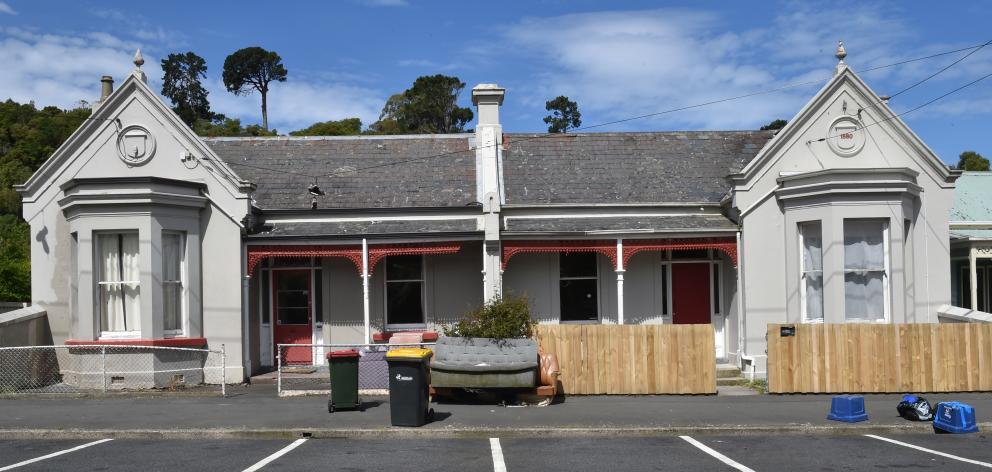
Private property investors are worried that changes to the Residential Tenancies Act will make it “almost impossible” to remove difficult tenants.
At issue is the current allowance under the Act which allows landlords to end a tenancy with 90 days' notice, without having to specify a reason.
Under law changes announced today by Associate Housing Minister Kris Faafoi, a valid reason will have to be given, including rent arrears or anti-social behaviour.
However, the New Zealand Property Investors' Federation (NZPIF), which represents about 6000 property owners, believes the changes will make it "almost impossible" to get rid of obnoxious tenants.
"Neighbours do expect landlords to do something about loud or potentially violent neighbours, which is where the 90-day notice comes in," NZPIF executive officer Andrew King said.
While there was a perception that tenants were being kicked out of their rental properties for "no reason", in reality the 90-day notice option was generally used as a last resort by landlords.
A recent NZPIF survey of more than 1300 of its property owners found that only 3% of tenancies were ended each year through a 90-day notice.
However, Kainga Ora says it is "unfair" to remove anybody from their home.
Kainga Ora chief executive Andrew McKenzie said New Zealand had a system of laws that set the threshold for determining if people should be removed from their communities.
"This is not the responsibility of Kainga Ora or any private property owner or investor.
"Kainga Ora is not the police and justice system, which have powers and well established systems based on natural justice and evidence standards to arrest, prosecute and incarcerate people who have broken the law."
Mr McKenzie said about half of its 185,000 tenants through 65,000 homes, were children and young people so "deciding to end tenancies is a very significant decision with wide-ranging consequences for the whanau and society in general".
He said it also posed the question of where these families are supposed to go if they are not suitably housed and getting the support they need to live well in their communities.
Otago Property Investors' Federation representative Kathryn Seque said the implication of the rule change was that landlords and managers would simply "not take chances" with tenants who might not have the right credentials.
Ms Seque said managers often took on tenants who were otherwise "marginal" in terms of having references or finances.
"For the most part, they turn out great, but if the rules change, we just can't risk it," she said. However, she pointed out that this applied less to students, who were generally on shorter, fixed terms, than those people who might be coming out of social housing.
A summary of the changes
• Remove the right of landlords to give 90 days' notice without cause;
• Specified reasons for terminating tenancy to include the landlord intending to make the property for sale within 90 days of the tenant leaving; extensive alterations be carried out; and changing use of the property.
• Require landlords to go to Tenancy Tribunal to end tenancies for anti-social behavior or rent arrears;
• Require landlord to produce notice of three offending examples of anti-social
• Notice period for landlord or family to live in the property increased from 42 days to 63 days, and the new occupation must be for at least 90 days.
• Notice period for when a property has been sold increased from 42 days to 90 day;
• Limit rent increases in a tenancy to one per year;
• Require a rent to be advertised and ban prospective tenants bidding for rents;
• Tenancy Tribunal to suppress the names of successful tenants taking cases to the tribunal – to avoid future landlords discriminating against them;
• Landlords not able to withhold permissions for tenants able to install reasonable fixtures and fittings so long as it is returned to original conditions and the cost it met by the tenant;
• Changes the basis on which fixed-term tenancies revert to periodic tenancies and relevant changes notice periods.
• New infringement regime to be introduced for straightforward breaches of the Residential Tenancies Act;
• Existing penalties under the act for exemplary damages to be increased by up to 80 per cent;
• Tenancy Tribunal to hear cases and make awards of up to $100,000 instead of $50,000.
- Additional reporting by NZ Herald
Comments
Labor wants to force middle class landlords out of business and push them into poverty as the poor vote Labor. A symbiotic arrangement with National, only corporations will be able to be landlords.
plus will need to change name from "landlord" to land-servant.
It is important to note that Landlords are still able to move tenants on for valid reasons. This change in legislatio protects tenants who are moved on for no reason at all. It does this while still providing a clear avenue to move on tenants for valid reasons. This change sounds ideal then and the argument that neighbouring tenants would be adversely affected is clearly rubbish. Police deal with that, not landlords.
Being a landlord is so much more than being an investor, this article uses the terms interchangeably. Running a property management company SHOULD be more than just clipping the ticket too. If you have bad tenants to deal with, get your ducks in line and present to the Tribunal your valid case. Surely it is preferable that the power in these situations rests with the Tribunal rather than with unprofessional cowboys who currently wield power unaccountably over their tenants?
If you're an investor worried about the new legislation, learn to be a decent landlord.












